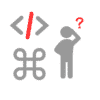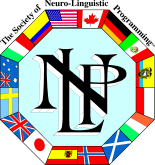
We know you want more. And here it comes! In this article we will treat you on what NLP Presuppositions are and provide you some examples. Besides that we have an exercise for you in store. And you want to exercise, don’t you?
What are NLP Presuppositions?
Simple! In NLP Presuppositions are assumptions or beliefs that a person holds and that the listener must accept to understand the statement. In other words: “What is the person assuming to be true, underneath what they are actually telling me?”. Presuppositions are not necessarily true, but even if the are not, by holding something not-yet-true as being true. We can help to bring that to fruition by challenging the presupposition with wellformed Meta Model questions.
Presuppositions usually appear in the deep structure of language and not in the actual surface structure, though they can be obvious sometimes. You can usually find many clues to what people’s presuppositions really are. Presuppositions are beliefs or assumptions, which support the language we hear from others or use ourselves. Presuppositions can be in the surface structure, allowing us an obvious clue. Or, they can be in the deep structure and only suggested by the surface structure of language.
Presupposing you take a look at the following example of NLP Presuppositions
Take this example of NLP Presuppositions
In the example: “When do you want to have the goods shipped, today or tomorrow?” – the keyword is “or”. “Or” here implies a choice, that implies options and the options given here are “today or tomorrow”. The presupposition here is that these options are the only two worth mentioning. Bottom line, you must want to have the goods shipped today or tomorrow if you want to make that choice.
And of course some exercise for today with NLP Presuppositions
As an exercise today, write out all the presuppositions you can find in the following sentence. “We cannot provide you that information now, as we have to discuss this with the team first.”. Besides that, listen to every discussion you hear today and scan for the presuppositions made therein. Have fun!
In NLP Presuppositions are part of the higher chunk called Generalisations which is part of the Meta Model.
Last but not Least
Remember, to increase your efficiency as a NLP Practitioner, know your positive intention for the message you want to convey, build rapport and pay attention on what and how you use language. Leave people and business in a better place that where you found them, every day!
Mind Tools provides NLP Practitioner and NLP Master Practitioner Trainings and Certifications. We educate you according to the renowned, latest and highest standards set by the Society of NLP. We will train you thoroughly in all the corners of Neuro-Linguistic Programming and some extras we learned from Dr. Richard Bandler directly.
- Mind Tools Co., Ltd.
- NLP Presuppositions







